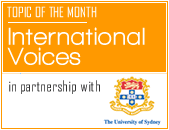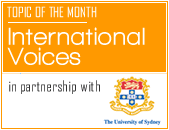NATO Air Strike Leads to Restructured Western Alliance

Eight years after 9/11, a war that started as a swift counterattack has turned out to be a long-term muddy mission.
The death toll is at a high since the start of the war 2001. The United Nations-backed election commission found "clear and convincing evidence of fraud" in Afghanistan’s presidential elections and the Taliban keep attacking NATO forces and gaining influence at the frontier regions of nuclear power Pakistan.
In fact the conflict in Afghanistan mutated long ago, evolving naturally from fighting the hatchery of Islamist extremism into a bigger issue.
Obama commanded the deployment of 21.000 new soldiers to Afghanistan in February, despite harsh domestic critique from a public divided as never before. Until the end of 2009 there will be 68 000 American armed forces at the Hindukush; about two thirds of all troops.
Now Obama is demanding further support from America’s allies. The Europeans mostly backed off until now. But after the momentous NATO air strike last week the situation has dramatically tapered again. A debate within the leading NATO member states about their strategy has broken out.
“We won’t win this war by killing people” was the first reaction of the Swedish foreign minister and President of the European Council Carl Bildt.
Recently Obama’s man in America, the American Commander of the US and NATO troops in Afghanistan, Stanley McChrystal, had warned the mission leaders “to avoid tactical gains by strategic losses through civilian casualties”. According to UN data from January to May there have been about 800 dead civilians because of NATO air strikes.
Allied Joint Force Commander, German General Egon Ramms emphasises, "If we succeed in regaining the support of the Afghan people, we have a good chance to pull the rug from under the Taliban”. He is superior to McChrystal who speaks of the same tenor. The death of civilians was not beneficial.
But in spite of new obstacles one thing became overtly crystal clear; war rages in Afghanistan: and not only in the Taliban-dominated south within American territory, NATO has completely failed in checking the Taliban from gaining influence.
Now European governments are beginning to reposition themselves alongside America.
 The dominating consensus steadily exposes: acting in concert by intensifying ones engagement. Indeed Europe aims at an early exit-strategy, but it is also clear that Afghanistan must first be stable.
The dominating consensus steadily exposes: acting in concert by intensifying ones engagement. Indeed Europe aims at an early exit-strategy, but it is also clear that Afghanistan must first be stable.
Just this week NATO Secretary-General Anders Fogh Rasmussen emphasised the unpredictability of an untimely retreat. He may fear an Afghan-Pakistani nuclear-armed Islamist Frankenstein-monster causing worldwide trouble domino-wise. This apprehension just has not been spoken about that openly.
The international community of states now has to avoid a worldwide concussion. So France, Britain and Germany will oblige Obama; despite domestic headwind and dramatically fading public support for the Afghanistan mission.
On a surprising visit in Afghanistan Britian’s Prime Minister Gordon Brown already promised a boost of troops.
German Chancellor Angela Merkel is still acting cautious because of the open outcome of the early Bundestag election on September 27. But by now she agrees with Foreign Minister Frank-Walter Steinmeier on the necessity of intensified engagement in Afghanistan despite their enmity in the campaign. This week she also agreed with Brown and French Premier Sarkozy upon an international conference by this year.
In a letter to UN Secretary-General Ban Ki Moon the three leaders stipulate to clearly define "benchmarks and timelines" to enable a step-by-step handover of responsibility for Afghanistan to its people.
On her way to reposition Germany in a new leading role Merkel also met Australian Prime Minister Kevin Rudd during his short visit in Berlin in July. According to the Spiegel they spoke not only about energy policy but also about the Afghanistan issue.
Both countries are engaged in the schooling of police forces. Its progress will play a decisive part in the course of a new strategy aiming at, “a clear step towards transition to Afghan leadership in all areas – security, health, education, development and governance" as Rasmussen expresses it.
In the past the NATO has already adulated the Australian government for their contribution in Afghanistan, several times. There will be future demands for stronger engagement.
Scaring off their protecting power, America, can’t be a big drawcard for Australia. Germany by comparison takes strength from its ties within the European Union.
Germany’s relationship with Australia is mostly defined by a strong dependency on imports. The 2007 balance of trade had a deficit of nearly 7.000 Billion AU$. Merkel surely will play this card.
Backed by America, the reformed European network will expedite the allocation of responsibilities "to formulate a joint framework for our transition phase in Afghanistan”. All involved countries will then have to decide whether to follow a new lead or hold off.
Australia will have to concede.
Uli Kammerer is a German student in media studies from the University of Cologne. He is participating in an exchange program with the University of Sydney where he hopes to gain practical skills and improve his language abilities before completing his German degree in 2010.










